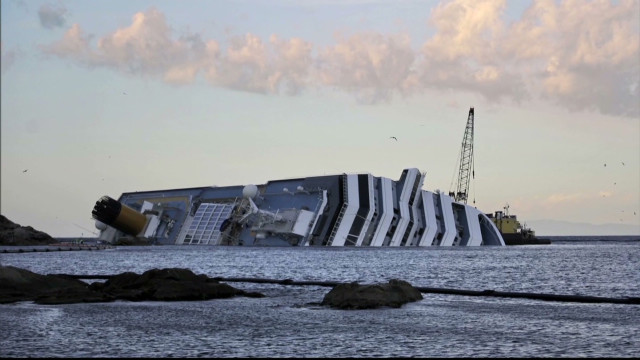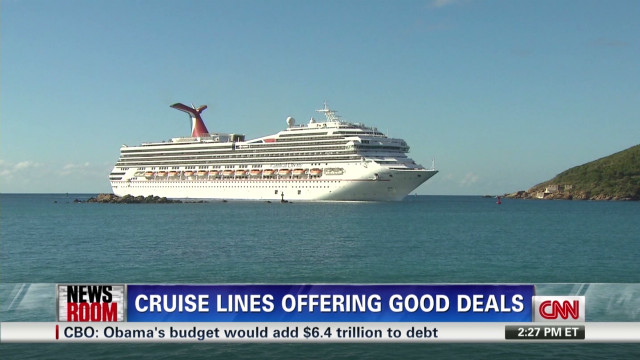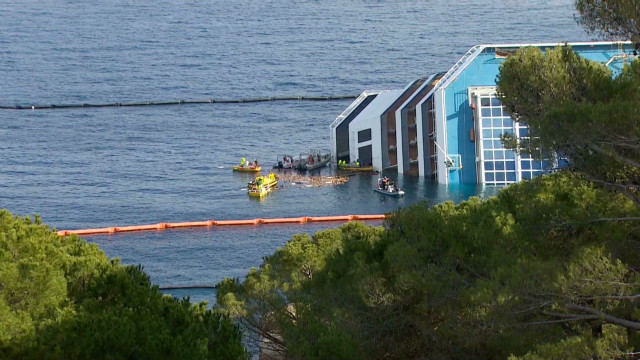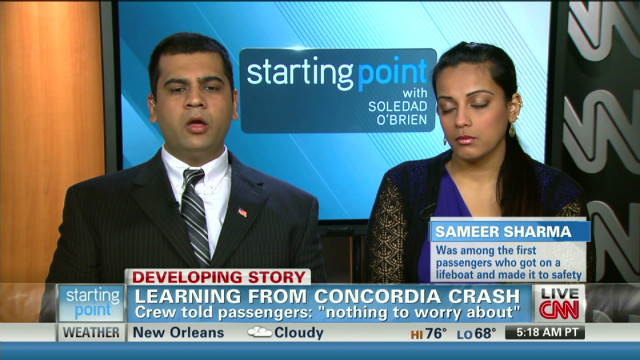Story highlights
- The cruise liner will be refloated and towed away, American and Italian specialists say
- The Costa Concordia struck rocks and turned on its side in January
- At least 30 people died in the disaster, with two people still missing
- Costa says its priority in recovering the ship is to protect the local environment
Salvage experts outlined their plan Friday to raise the wrecked Costa Concordia cruise liner from the sea floor off Italy in one piece and tow it from the disaster site.
The complicated operation is expected to start in the next few days and take up to a year, the ship's owner, Costa Cruises, said in Rome.
It will be a joint effort by Titan Salvage, an American-owned specialist marine salvage and wreck removal company, and Italian marine contractor Micoperi.
Capt. Richard Habib, president of Titan Salvage, said it was an "unprecedented" operation.
"It is not impossible. It is entirely possible. It will be successful, and we believe that our plan will work," he said when asked whether there was a backup plan.
At least 30 people died when the cruise liner struck rocks and turned on its side off the Italian island of Giglio on January 13.
The search for two people who remain missing will continue alongside the removal operation, said Franco Gabrielli, head of the Italian Civil Protection agency. The 30 bodies recovered have all been identified.
The ship cannot stay in its current position, as it represents a danger for the environment, he added.
"The plan to re-float the hull in one piece gives top priority to minimising environmental impact, to protecting Giglio's economy and tourism industry, and to maximum safety of the work," Costa Cruises said in a statement.
"Once removal is complete, the sea bottom will be cleaned and marine flora replanted."
The operation will be divided into four basic stages, Costa said in its statement.
First, once the ship has been stabilized, an underwater platform will be built and watertight boxes, or caissons, fixed to the side of the ship that is above water.
Two cranes fixed to the platform will pull the ship upright, helped by the weight of the caissons, which will be filled with water.
When the ship is upright, caissons will be fixed to the other side of the hull to stabilize it.
Finally, the caissons on both sides will be emptied, after the water inside has been purified to protect the marine environment, and filled with air, Costa said.
Once the giant ship has been refloated, it will be towed to an Italian port, probably in Tuscany, to be dismantled and disposed of according to local regulations.
No exact cost was given by the officials who presented details of the recovery operation.
But a Costa Cruises representative said that the figure would probably be about $300 million.
Costa said efforts to prevent damage to Giglio's tourism industry would include housing workers involved in the recovery operation on the mainland. Equipment will also be stored there.
The Concordia's captain, Francesco Schettino, is being investigated for possible criminal charges and remains under house arrest.
He faces allegations of manslaughter, causing a shipwreck, abandoning ship, failing to report an accident to the coast guard and destroying a natural habitat, a prosecutor said this year. Giglio is a protected park.
Schettino's first officer, Ciro Ambrosio, and six other officers both on the ship and from the firm Costa in Genoa are under investigation over allegations including manslaughter, shipwreck and failure to report the accident, the prosecutor in the case has said.
No one has been charged over the shipwreck.







